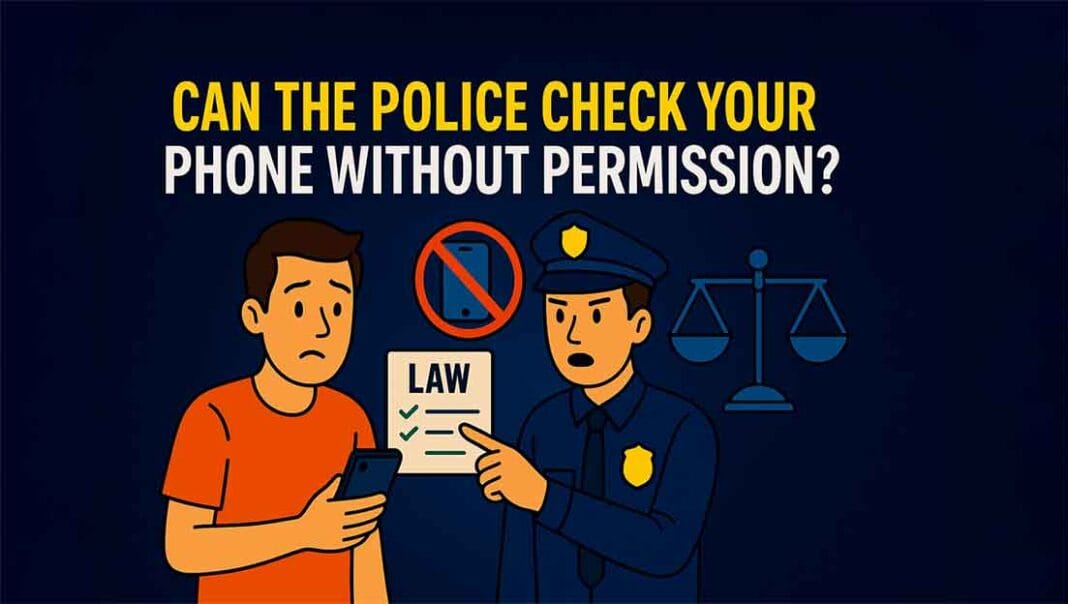Have you ever been stopped by the police and wondered, “Can they legally check my phone without my permission?” You’re not alone! Understanding your digital privacy rights can protect you from potential misuse of authority. This article dives deep into the crucial question—can police check your phone without permission?—to equip you with knowledge that could save you from unnecessary stress or legal trouble.
Also Read: Pride Month 2025: 7 Bold Legal Milestones Shaping LGBTQ+ Rights in India
Can Police Check Your Phone Without Permission? Understanding Your Rights
1. General Rule: Police Need a Warrant
As a general rule, police need a valid search warrant to go through your phone. A search warrant must be specific, detailing exactly what the police are searching for. Without it, checking your phone usually violates your rights.
2. Exception: Immediate Threat or Emergency Situations
Police may bypass the warrant requirement in emergency scenarios where there is a clear and immediate threat. For example, if they believe your phone holds crucial evidence that could prevent imminent harm.
3. Exception: After a Lawful Arrest
If you’re lawfully arrested, police might legally inspect your phone under certain conditions, typically limited to preventing evidence destruction or immediate safety threats.
4. Your Consent Changes Everything
If you voluntarily hand over your phone or consent verbally, police no longer require a warrant. Always clearly state your refusal if you don’t consent to a search.
5. Border and Security Checks
At international borders or airports, security agencies often have broader powers. Police or customs officers might legally check your phone without explicit permission in these scenarios.
6. Know the Difference: Seizure vs. Search
Police can temporarily seize your phone to prevent evidence destruction, but they still usually need a warrant to actually inspect its contents.
7. Digital Privacy and Encryption
Your right to digital privacy also covers encryption. Police can’t legally force you to disclose passwords or unlock your phone without specific legal orders or warrants in most jurisdictions.
What to Do If Police Ask to Check Your Phone?
- Stay calm and polite.
- Clearly state, “I do not consent to a search.”
- Ask if they have a warrant.
- Document the interaction safely.
- Contact legal assistance immediately if needed.
Legal Precedents You Should Know
Several landmark cases have reinforced your rights. Notably, Riley v. California (2014) clarified that warrantless cell phone searches during arrests are generally unconstitutional in the US.
How Can You Protect Your Privacy?
- Use strong encryption and password protections.
- Regularly update your knowledge about your rights.
- Seek professional legal advice in specific situations.
Conclusion:
Understanding whether the police can check your phone without permission is crucial. Although there are exceptions, your privacy is generally protected by law. Stay informed, be aware of your rights, and don’t hesitate to seek legal help if needed.
Did you find this article helpful? Share it with friends.
Also Read: Workplace Rights: Can Your Boss Make You Work on Sundays?


